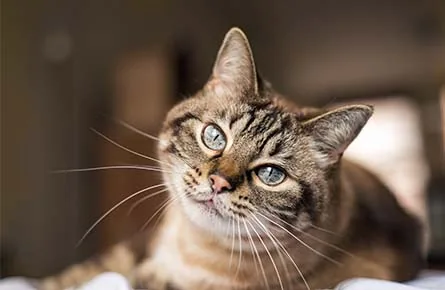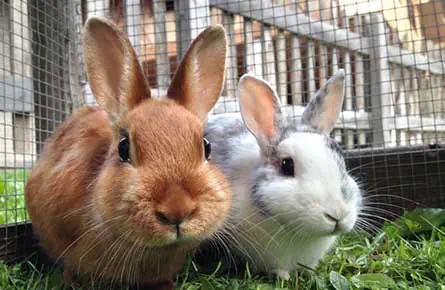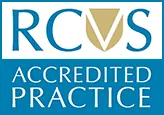Bad breath can be an early sign of dental disease, which is estimated to affect at least 70% of adult dogs and cats. Dental disease progresses in several different stages. The first stage involves the build-up of plaque on the surface of the teeth; this is a soft, creamy layer that contains a mixture of saliva, cell debris and bacteria.
This bacteria then causes gingivitis (redness of the gums) and bad breath. Over time, minerals within the saliva also harden to form calculus, which appears as a brown covering over the teeth. Unfortunately, this is not just a cosmetic problem as calculus traps bacteria within the mouth, which then eat away at the gums and cause teeth to become loose. In addition, these bacteria can spread to other organs in the body, including the heart, kidney, and the liver.
Treatment involves a dental scale and polish, which is carried out under general anaesthesia. During this procedure, plaque and calculus are removed and, if the disease is severe, some teeth may need to be extracted. Unfortunately, even after a professional clean, plaque starts to build up within hours and therefore a preventative daily home-care routine is vital. However, it is important not to use human dental products as these often contain detergents, foaming agents and fluoride, all of which are designed to be rinsed and spat out, which our pets are unable to do!
Please contact us if you would like to book your pet in for a dental check or if you have any further questions about how to improve your pet’s dental hygiene.
What are the symptoms of poor dental health?
- bad breath
- problems eating
- gum and tooth pain
- tooth loss
- lethargy
What can your vet do to improve dental health:
- scale and polish to remove plaque and stains
- tooth extraction may sometimes be necessary
- treatments to prevent plaque reforming
- all treatments carried out under general anaesthetic
What can you do to improve dental health for cats and dogs:
- brush your pet’s teeth every day with a pet toothpaste
- use a water dental additive
- give dogs dental chews every other day
We are happy to answer any questions you may have, as well as advising you on the recommended products or dental diets for your pet. Contact your nearest Parkhill Vets in Wetherby for a consultation.
For a limited time we are offering 10% off dental treatment. For full terms and conditions, click here.
Book a dental appointment for your pet
Find out more about dental care for your dog, cat or rabbit by clicking the links below.






